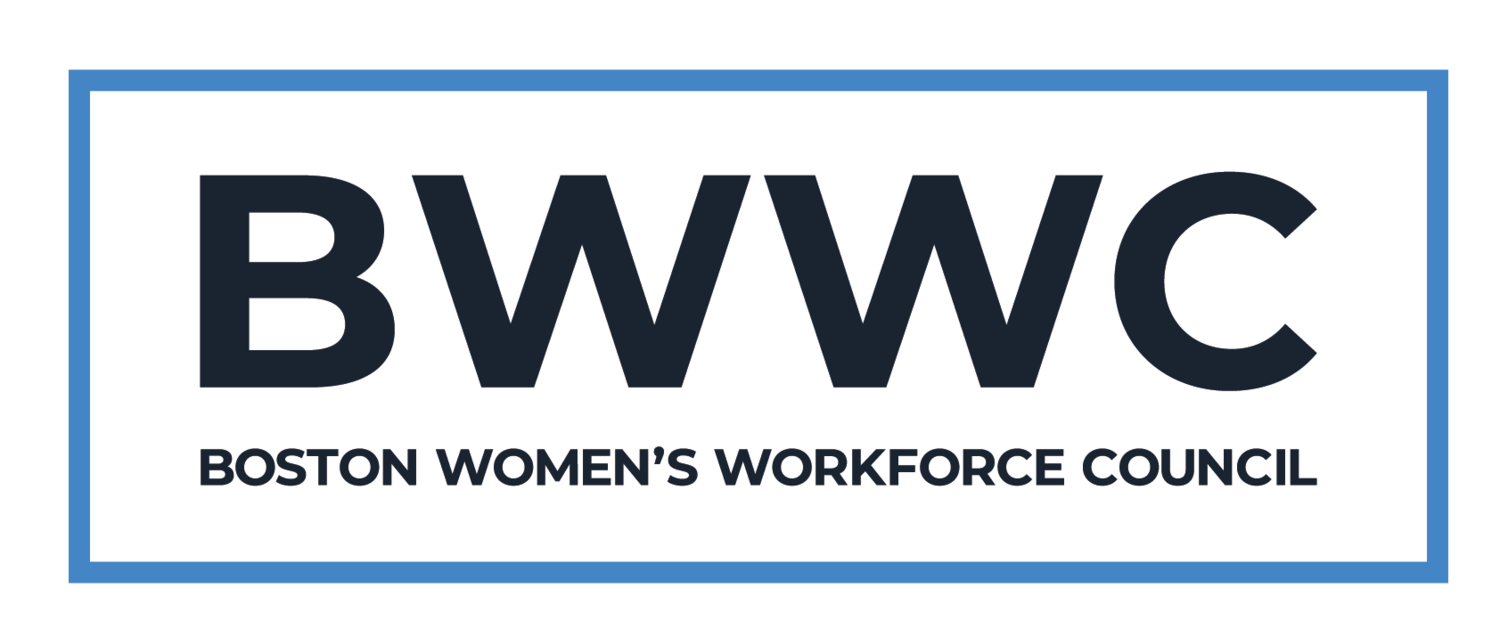CONTACT: Hannah Miller
(413) 717-7759 hannah@teakmedia.com
FOR IMMEDIATE RELEASE
December 3, 2020
Boston Women’s Workforce Council Curated Research Provides Interventions to Curb Racial / Gender Pay Gap for Boston’s Employers
BOSTON – A lack of diversity and inclusion within the workforce is among the reasons for the 30-cent gender/racial wage gap that exists in Boston businesses, according to a new research report released today by the Boston Women’s Workforce Council (BWWC), a public-private partnership between Mayor Martin J. Walsh’s office and Greater Boston employers.
The curated research offers causes for the gender and racial wage disparity as well as “interventions” - a combination of policy and business practices that if implemented, can drive real change, resulting in equal pay for equal work regardless of race or gender and create a path toward leadership and higher paying roles for women.
Closing the wage gap is not only an advantage for the women who receive increased pay, the research shows, it is proven to be better for employee retention and business productivity overall.
While 63 percent of women report being discriminated against at work within the last five years, many employees don’t know a wage gap exists within their organizations, according to BWWC Executive Director Kim Borman. “Overt discrimination exists, but often it is the structural inequalities which are harder to detect that put women, and especially women of color, at a disadvantage over their lives and careers. These intangible barriers keep women from receiving promotions to positions of power and leadership that are rewarded with higher salaries.”
Outdated cultural mores, like a lack investment in affordable childcare, are behind a disadvantage for women that has been exacerbated by the current health pandemic. In September, more than 860,000 women “opted out” of the workforce, which is four times that of their male counterparts. “When families are forced to decide who stays home to care for the children who are not in school, it often comes down to the size of the paycheck,” Borman says. The research suggests employer and government funding for childcare is necessary for the gender wage gap to close. Flexibility in work schedules is also among the recommended solutions.
Other suggestions for lessening the pay discrepancies within companies offered in the report include calculating both the raw and adjusted wage gaps through a pay audit. Doing so enables employers to understand the gap that exists between genders and races within a company. “Often these numbers are alarming,” Borman says.
Measuring and holding people and departments accountable to progress, hiring a full-time diversity manager, and conducting anti-bias training are among additional interventions provided by the research. In addition, hiring practices, like removing identifying information from employment applications has also resulted in increased equity in hiring.
The research was released to attendees of the Boston Women’s Workforce Council after the 6th Annual Effective Practices Conference, held on December 3rd. Speakers included Mayor Martin J. Walsh and Attorney General Maura Healey, who urged Boston employers to join the BWWC’s 100% Talent Compact, fund childcare, and invest in diversity equity and inclusion to achieve and the highest level of productivity within their companies.
"In Boston, we know that everyone deserves to be paid fairly, no matter their race or gender. That's why our Office of Women's Advancement works every day to advance the work of wage equity. I want to thank the Boston Women's Workforce Council, and all of the Boston businesses that contribute, for their tireless and continued dedication to pay equity,” Mayor Martin J. Walsh says.
About Boston Women’s Workforce Council
Founded in 2013, the Boston Women’s Workforce Council (BWWC) is a unique public-private partnership between Mayor Martin J. Walsh’s office and Greater Boston employers dedicated to eliminating the gender/racial wage gap. The BWWC recruits employers to sign the 100% Talent Compact, a pledge to examine their policies, work toward fixing pay and advancement inequities they might find, and share their payroll data on race and gender in order to provide a community snapshot on progress. It is a first-in-the-nation approach to removing the visible and invisible barriers to women’s advancement. For more information on the Boston Women’s Workforce Council, visit www.thebwwc.org.

